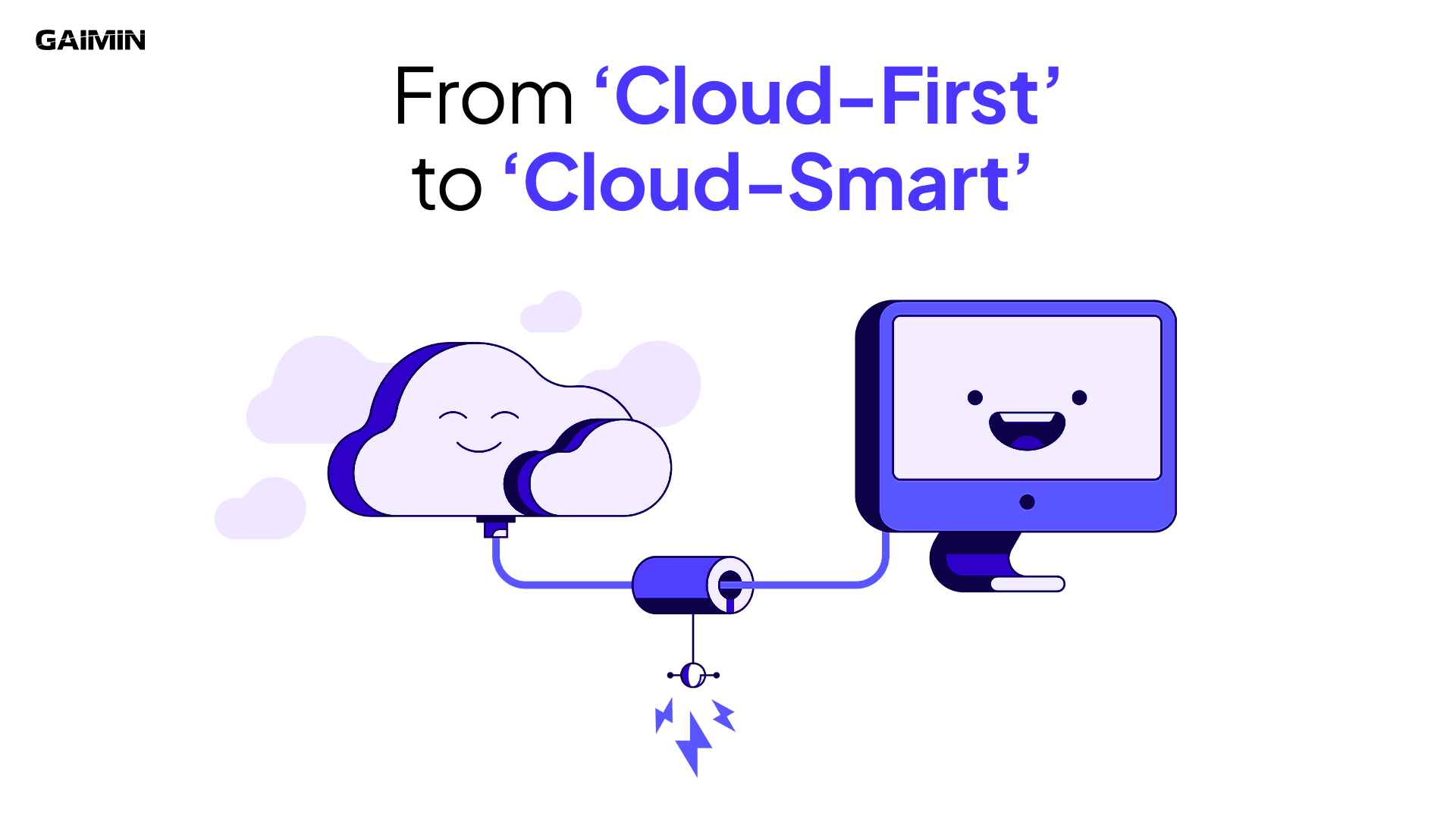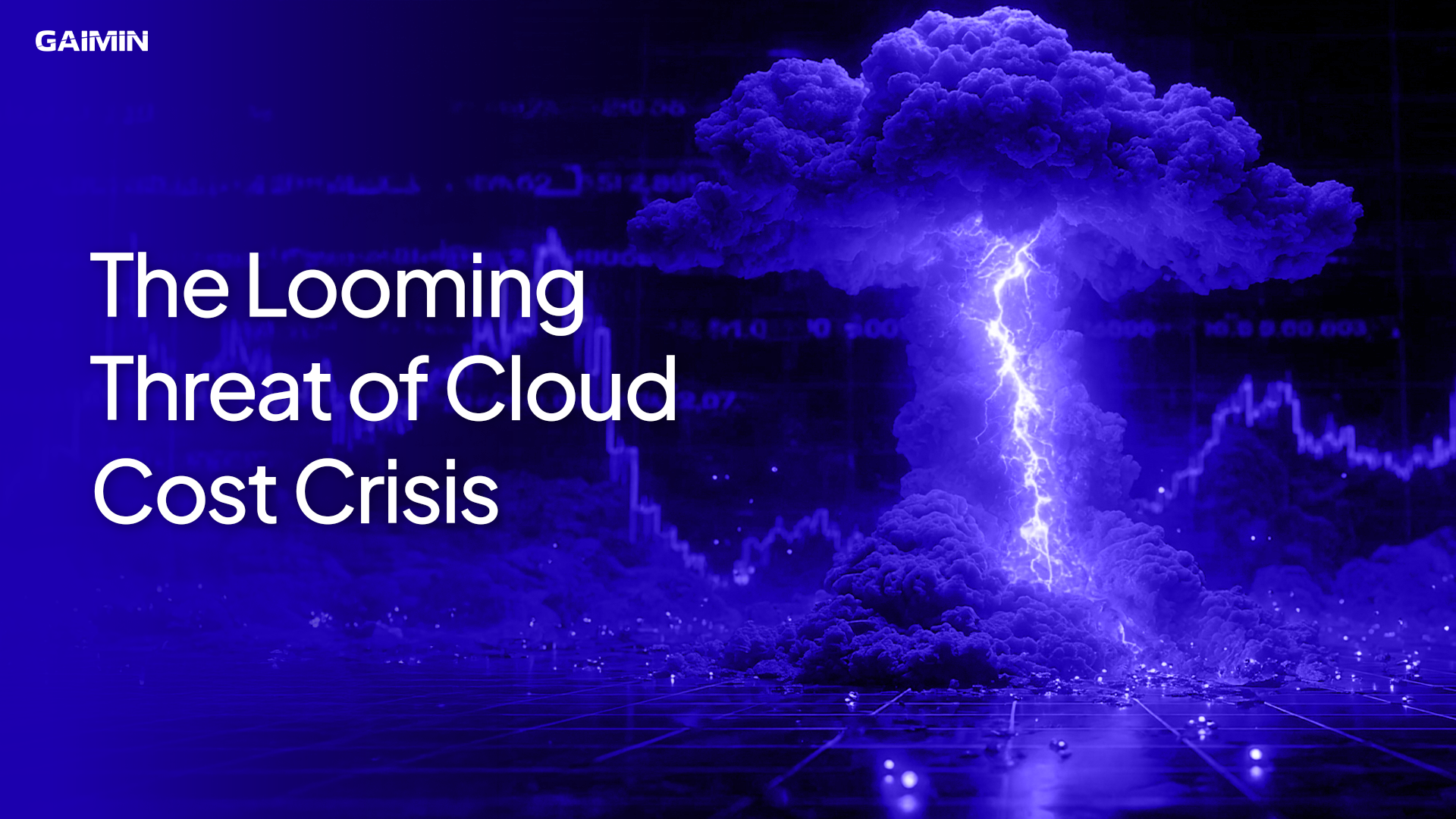In this current business landscape, operational processes supporting business activities are increasingly data-driven, generating vast amounts of information that require efficient storage, processing, and distribution. Large business files, such as inventory updates, patches, game builds, IoT sensor logs, shipment tracking data, and compliance documents, often feed into “Extract, Transform, and Load” (ETL) pipelines that are critical for maintaining operational efficiency. However, traditional cloud providers like AWS and Azure, which are often the go-to platforms for these tasks, are now becoming out of reach for the average startup due to escalating costs, latency challenges, and security risks resulting from the need to store and distribute large files.
According to Flexera, 84% of organizations struggle with rising cloud costs, with budgets projected to increase by 28% next year. While the early credits and grants go a long way in helping these projects, the real struggle starts when they are exhausted. GAIMIN Cloud provides a cost-efficient, secure, and scalable alternative for managing these large files by leveraging idle gaming hardware. This approach enhances performance, reduces expenses, and empowers businesses to stay competitive in an increasingly demanding market.
In this article, we will highlight the challenges businesses go through as a result of unexpected cloud costs and explore how GAIMIN Cloud can help businesses with large files to share, manage costs, and, in so doing, optimize business operations.
Challenges of Large File Management
Businesses rely heavily on cloud services to handle the growing volume of data generated by various business operations. The current global GPU market was valued at $65.3 billion in 2024, and is projected to reach $274.2 billion by 2029, according to Statista. This growth shows the spontaneous increase in computing tasks, which in turn reflects the growing demand for cloud-based data storage and processing by businesses in industries like AI, gaming, logistics, and manufacturing.
The challenges of managing large files are significant. Centralized cloud providers charge an incredibly high rate for storage and bandwidth, which can become challenging for businesses handling terabytes of data, as it compounds the overhead cost. Latency issues with centralized infrastructures can delay global file distribution, impacting real-time decision-making, while security risks due to a single point of failure threaten businesses that handle sensitive information. To make matters worse, businesses indirectly pay when centralized infrastructures like AWS and Azure try to expand, as scaling these infrastructures is often capital-intensive, with most of the cost passed on to businesses.
These challenges have fueled the increasing adoption of decentralized physical infrastructure networks (DePIN) built on contributed resources by various users. An example of this DePIN is a decentralized cloud built on devices that are internet-connected and typically contribute GPU and file storage, with gaming PCs often providing the high specification capacity within the DePIN. This is the principle upon which GAIMIN Cloud is built.
Features and Benefits of Decentralization in File Distribution
In decentralized file distribution, files are split and stored across a global network of nodes, reducing dependency on costly centralized data centers. This approach automates file replication and retrieval, eliminating the manual process. Let us look at several key features offered by GAIMIN Cloud in file distribution:
Cost Efficiency: Through our decentralized business model, GAIMIN Cloud significantly lowers operational costs for businesses by tapping into underutilized gaming PCs. Since a substantial portion of GPUs globally might never be used to their full capacity, GAIMIN repurposes these dormant resources to form a decentralized cloud, deriving savings from what it would have taken to build traditional data centers for these operations.
High-Speed Distribution: Peer-to-peer file sharing ensures rapid access to large files, critical for real-time business operations. GAIMIN Cloud uses an automatic load balancer and retriever to ensure fast delivery and access to business files.
Enhanced Security: GAIMIN Cloud utilizes security algorithms and immutability, protecting files from breaches and unauthorized access, revolutionizing cloud computing securely.
Scalability: GAIMIN Cloud easily scales to accommodate growing data volumes without any proportional cost increase, as businesses only pay for what they use, making it suitable for dynamic business needs.
Compared to traditional cloud providers, GAIMIN offers substantial cost savings and performance benefits. For instance, a new game studio could save an estimated 60% on cloud costs annually by switching to GAIMIN, by leveraging our transparent, usage-based pricing model.
Use Cases in Business Process Optimization
Apart from the gaming and content industries, decentralized cloud services like ours can also be integrated into various business processes to enhance efficiency and reduce operational costs. Here are some other use cases of automated file distribution in business processes:
1. Inventory and Supplier Data Sharing:
Retailers and manufacturers need to share real-time inventory updates and purchase orders with global suppliers. Large files, such as detailed stock reports, can be cumbersome and even expensive to distribute for smaller-scale businesses that solely rely on traditional solutions. Through a peer-to-peer distributed network, we ensure faster distribution and access to these files for suppliers, minimizing the delay faced with centralized options. By doing so, GAIMIN Cloud helps businesses cut storage costs by up to 60% and accelerates responsiveness, enhancing collaboration.
2. IoT and Telematics Data Management:
Logistics firms collect massive IoT data from vehicles and sensors for route optimization, generating terabytes of logs daily, which can be very costly to distribute with traditional cloud providers. GAIMIN Cloud could store and process these IoT logs on decentralized nodes, enabling low-cost and secure sharing with analytics teams. This approach optimizes speed and redundancy, reduces cloud processing fees, and improves operational efficiency.
3. Compliance and Audit Documentation:
Businesses must share regulatory files, such as safety certifications, with authorities, requiring secure and tamper-proof storage. GAIMIN Cloud provides immutable storage that ensures tamper-proof records. This approach lowers compliance costs and builds trust with stakeholders, ensuring regulatory adherence.
These use cases demonstrate how GAIMIN Cloud can transform business processes via appropriate file management, making the process of storage and distribution of files more efficient, secure, and cost-effective.
Market Trends and Future Outlook
The adoption of DePIN-based solutions like GAIMIN Cloud is set to accelerate, driven by market trends. With the GPU market projected to reach $274.2 billion by 2029, this highlights the growth potential of the decentralized computing industry, which would in turn optimize operations for small-scale businesses. Our innovative approach positions businesses with large files to manage for future growth, offering a competitive edge through cloud cost savings, enhanced security, and operational efficiency.
We’re excited about the future and confident that GAIMIN will not only meet the demands of today’s market but will also drive the innovations of tomorrow. Our journey is just beginning, and we invite you to join us in adopting the future of distributed computing.
If you are a business looking to optimize your processes, kindly check out our GAIMIN Cloud File-Sharing, and if you are new to GAIMIN, learn more about us on all our channels here.



.png)
